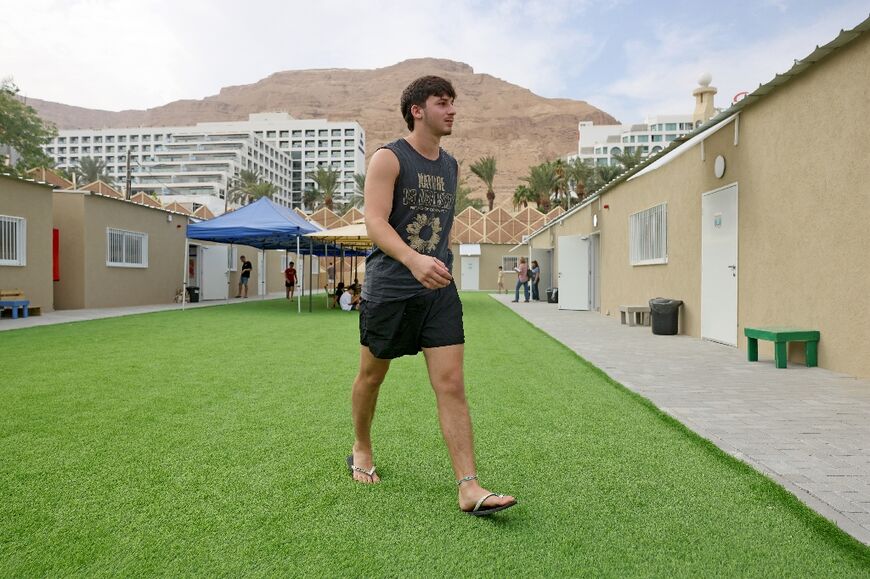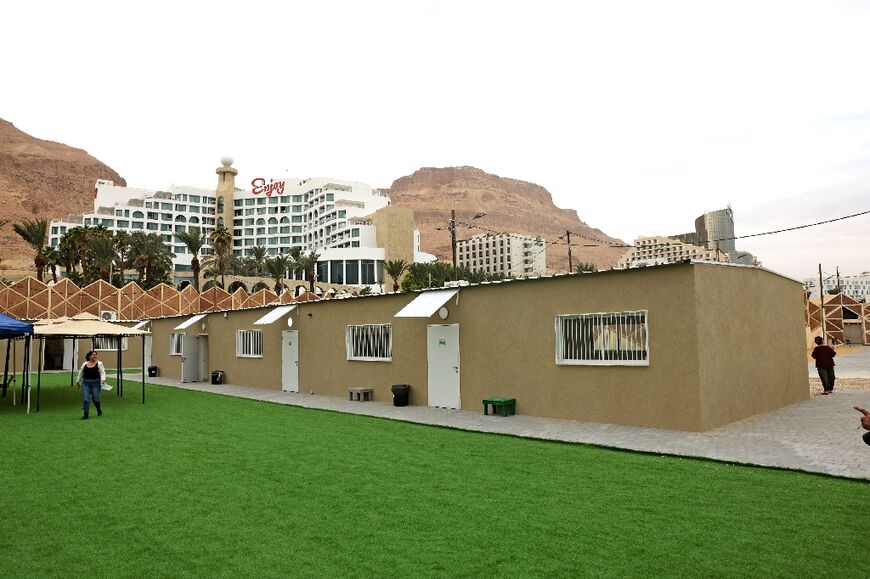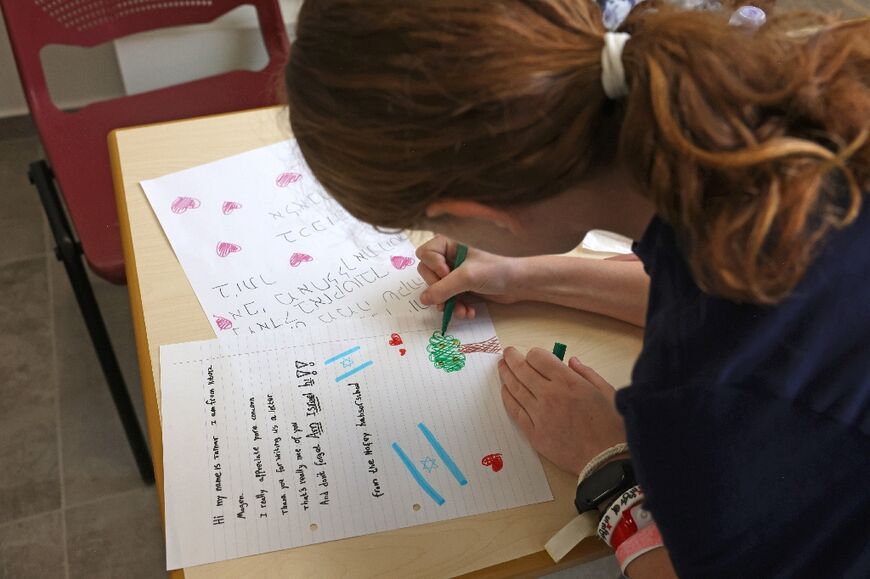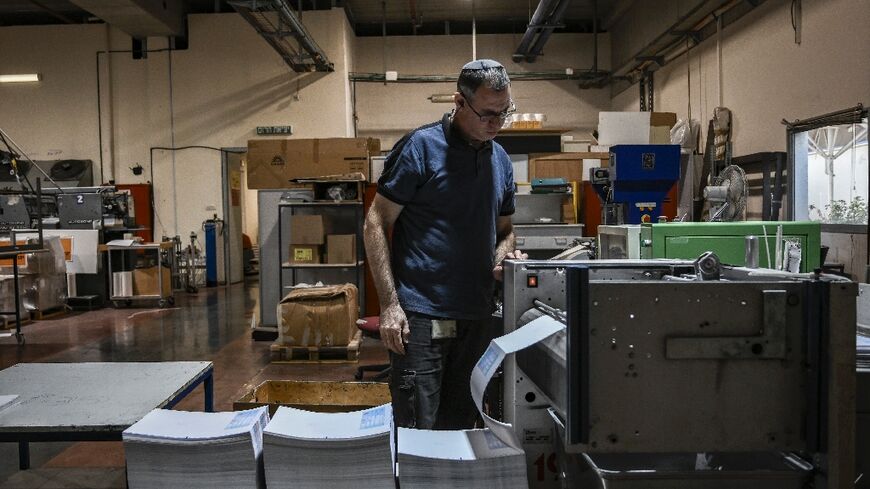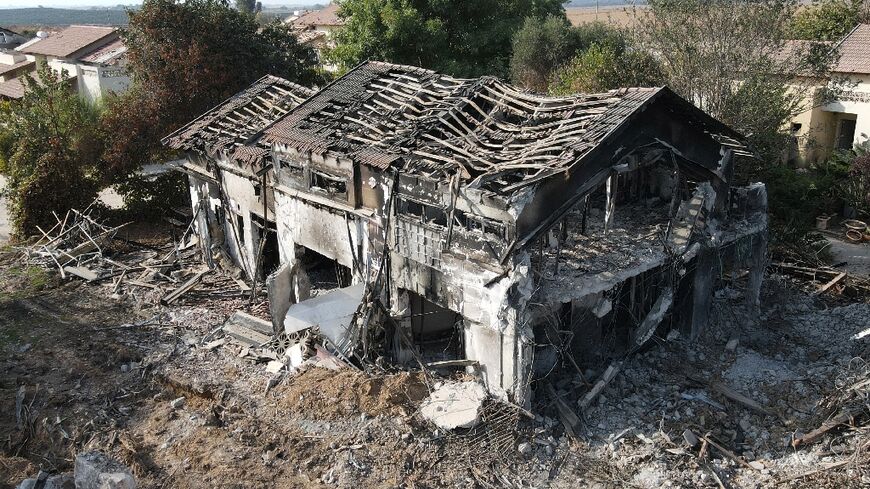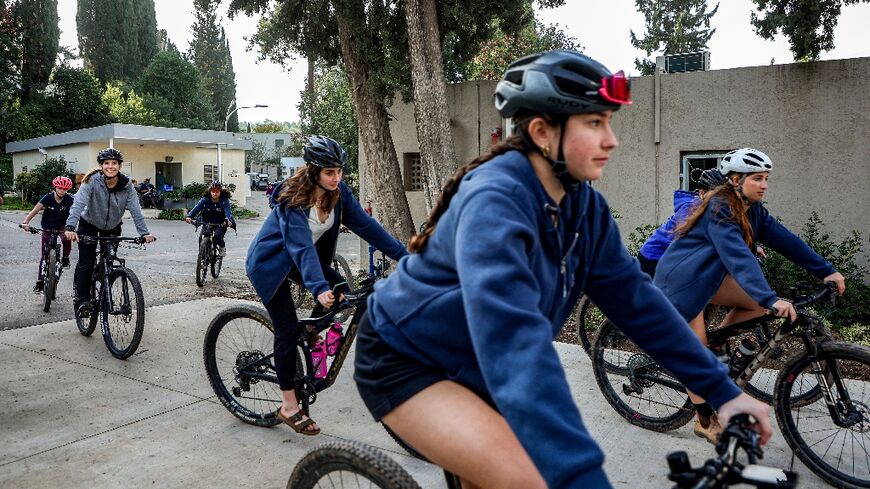Kibbutz children shaken by Hamas attack return to school
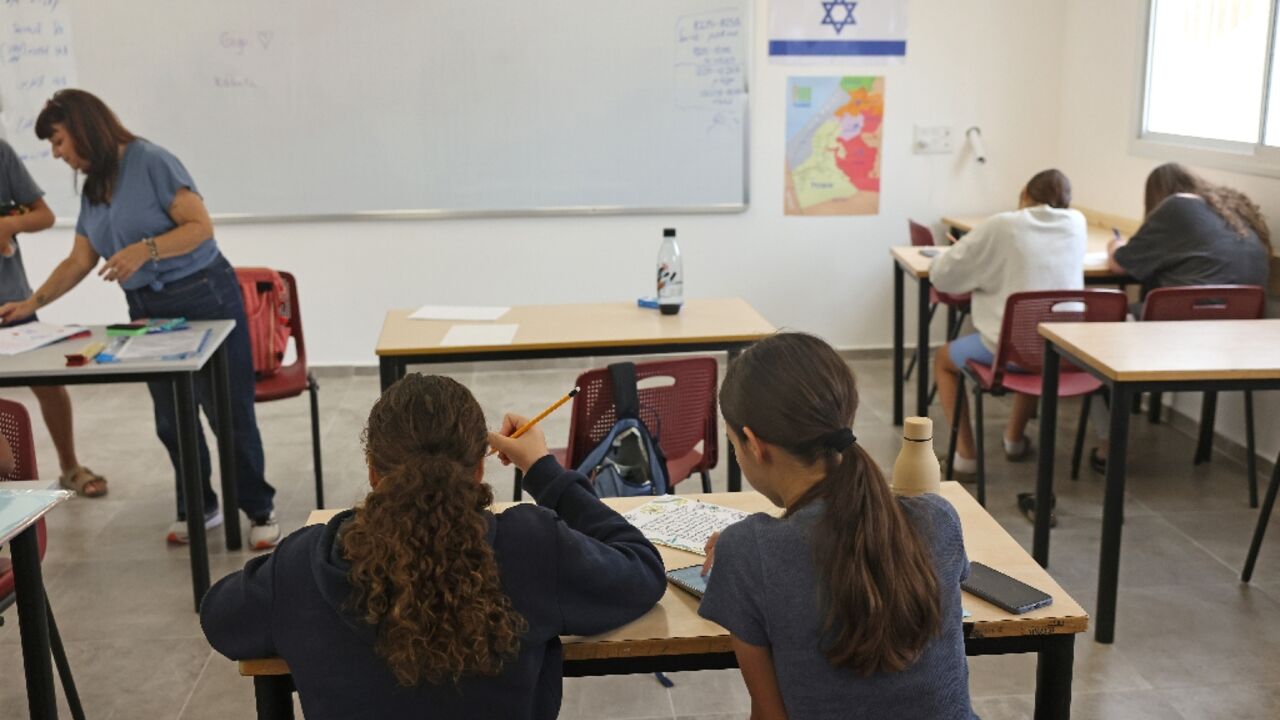
For the children of Beeri kibbutz, overrun by Hamas gunmen when they stormed over the nearby border with Gaza on October 7, there is nothing normal about picking up their studies again.
School is far from home in Ein Bokek, on the Dead Sea, and the traumatised pupils have not long buried friends and relatives lost in the attack.
"In my class, we were 17 students. Now we are 15, as two were murdered", said Lotan Ron, 15.
In the grade above, three pupils were taken captive, and another two killed, reducing the class to 10.
The kibbutz, a community based on collective living, had 1,200 people. At least 85 were killed and around 30 taken prisoner by Palestinian Islamist militant group Hamas.
According to Israeli authorities, more than 1,200 people, mostly civilians, were killed and some 240 people were dragged away as hostages in Hamas's unprecedented attack.
In response, Israel has relentlessly bombarded Gaza and launched a ground campaign, which have killed more than 11,240 people, among them 4,630 children, according to the Hamas-run territory's government.
After the attack, residents were evacuated from Beeri and the kibbutz was converted into a staging post for Israeli forces.
The inhabitants meanwhile were relocated to hotels in Ein Bokek on the shores of the Dead Sea.
For the displaced secondary school students, classes began again on November 8 in temporary buildings.
In the improvised schoolyard, some walk around and others look at their phones.
"It's not a regular school. Even teachers are deeply traumatised," said Lotan, wearing shorts and flip-flops.
"Teachers, psychologists, no one had ever experienced something like this. No one knows how to deal with it."
- 'Real therapy' -
Currently, there are only three hours of classes per day. Students study maths and literature, but they spend much of the time talking.
"We try to learn, but no one is focusing on the class," Lotan said.
"I feel empty," the teenager said, adding that what soothes him most is his friends.
"It's good to be with friends. That's the real therapy."
Lotan said five of his friends were killed in the attack.
"At a friend's funeral, I kept thinking, 'I don't see my other friend.'"
"And then I realised he was also dead," he said.
Another Beeri resident, Nadav Kipins, 27, has stepped up to help in the new school.
Both of Kipins's parents were killed and seven family members were taken hostage.
"Children don't really see the value of school," Kipins said.
"Some lost everything and ask why they should go to school... Nothing matters. It's really hard to give them meaning."
Under the watch of their teacher, some 12-year-old pupils respond to New York residents who wrote them letters following the October 7. Many of the children look exhausted, with dark circles around their eyes.
- 'Some kind of routine' -
For Miri Gad Messika, a 45-year-old marketing consultant and a mother of three children, the return to school has created "some kind of routine" at least.
"Before, they were staying in bed... getting bored," she said.
On October 7, the family jumped from the second floor of their building after it was set on fire by Hamas militants in the knowledge that more gunmen could be waiting for them outside.
For Messika, the time has not yet come to start thinking about the children's future again.
"My daughter's best friend has not been identified yet. She wasn't even buried."
Beeri's primary school children have also returned to class in another village not too far from Ein Bokek.
Tom Gaz, 10, who does not like school, nevertheless feels that it is good for her.
"If we stay in our hotel all day doing nothing, we are never going to get out of this," she said.
After staying locked up for 20 hours in her home's safe room, as Hamas gunmen roamed outside, she said she still feels fear.
"I am trying to prepare myself for another attack.. If terrorists come, do I have to jump out the window?" she asked.
School -- especially playtime -- provides some distraction.
"We try to play, not to talk about what we lived through, because for some children who lost family members it's just too hard," Gaz said.


